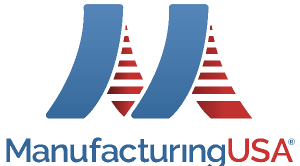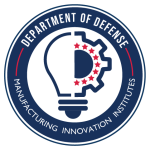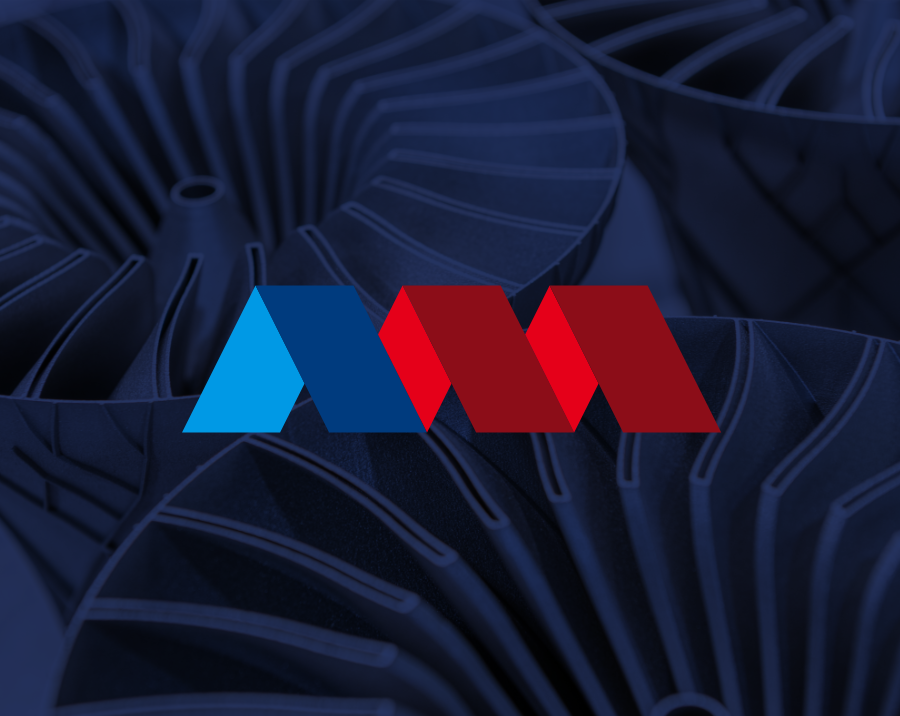

News
America Makes Announces Project Call – Phase 3 of MAMLS
November 27, 2017 | Categories: America Makes News, Opportunities
Phase 3 of the Maturation of Advanced Manufacturing for Low-Cost Sustainment Program Crucial to Air Force Strategic Readiness
Youngstown, Ohio — November 27, 2017. America Makes proudly announces its next Project Call for Phase 3 of the “Maturation of Advanced Manufacturing for Low-Cost Sustainment (MAMLS)” program, funded by the Air Force Research Laboratory (AFRL), Materials and Manufacturing Directorate, Manufacturing and Industrial Base Technology Division.
Driven by the National Center for Defense Manufacturing and Machining (NCDMM), America Makes and AFRL are targeting to make available approximately $5.7M to fund multiple awards with at least $2.8M in matching funds from the awarded project teams for total project call of roughly $8.5M.
With the addition of this Project Call, America Makes will soon have a portfolio of more than $114.5M in public and private funds invested in advancing the state-of-the-art in AM in the United States.
“Today’s Project Call announcement marks a significant milestone for delivering additive manufacturing technology demonstrations and solutions that can elevate the entire sustainment community’s understanding and use of additive manufacturing,” said Rob Gorham, America Makes Executive Director. “Phase 3 of MAMLS will improve rapid part replacement/maintenance for legacy aircraft, enable on-demand replacement of critically damaged or obsolete components, and reduce the cost and lead time to fabricate replacement components. This is an effort with the potential to resolve the existing challenges that are hindrances to maintaining the strategic readiness of the Air Force, as well as the entire military, today and well into the future.”
The MAMLS program is aimed at improving efficiency of the factory and/or AF Air Logistics Complexes for rapid part replacement for legacy and other aircraft. The objective of this Project Call effort is to address key challenges to the insertion of AM technology for maintenance, sustainment, and logistics operations within the Department of Defense (DoD) that were previously identified throughout MAMLS Phases 1 and 2. The focus of this Project Call is of great significance to the AFRL. The previously identified Phases 1 & 2 material, process, and post-processing barriers are not only preventing greater penetration of AM technology for more challenging, safety critical applications, but also impeding the fulfillment of the extensive breadth of parts required by the Air Force sustainment community.
Technical Topics
The three (3) technical topics for this Project Call are as follows. Proposals up to $5.7M will be considered.
Topic Area 1 – Feature-based Qualification using Directed Energy Deposition (DED)
With current casting and welding processes, once solidification occurs, there are few opportunities for elimination of compositional, physical, or microstructural discontinuities. Subsequently, the resulting product forms possess higher inherent variability that require changes to the design and manufacturing process to accommodate this variability.
Feature-based qualification (FBQ) approaches seek to identify and create a catalog of all relevant unique combinations of process parameters with simplified specimen geometries. This catalog of qualified features is subjected to extensive material and process qualification testing. Parts are qualified by decomposing the parts into the relevant constituent features and producing each feature in a manner compliant with the catalog specification. FBQ is seen as a potentially viable strategy for avoiding non-statistical based approaches and inefficient point design practices.
The goal of this topic area is to apply FBQ approaches to the production of large scale, additively manufactured aerospace components utilizing DED techniques to first, demonstrate the extent of utility of the FBQ approach and second, identify associated implementation challenges and risk reduction or alternative qualification strategies.
Topic Area 2 – Understanding Manufacturing Realities of AM
There are many factors that lead to scrapped material from the AM process. Possible root causes include powder contamination, process interruptions, unremoved powder, rough finish on downward facing surfaces, and unintended volumetric flaws, such as lack of fusion voids or distributed porosity. Characterization of these flaws, their influence on mechanical performance, and the ability to conduct post-processing to repair such flaws are desired. Furthermore, as engineers gain more experience with materials and the effect of defects, it is reasonable that thresholds of allowable flaw size will change, likely increasing allowable flaw sizes due to the conservative approaches employed in the absence of knowledge.
The goal of this topic area is to quantify the effect of defects on the mechanical performance of additively manufactured material. Evaluation of material properties that are sensitive to statistical extremes is of particular interest, as well as the evaluation of real flaws rather than having to make assumptions about the relevance of intentionally induced flaws, such as CAD-embedded voids. Characterizing the extent to which specific post-processing approaches, such as Hot Isostatic Pressing, improve mechanical performance is also relevant to this topic area.
Topic Area 3 – Emerging Process Technology for Low Criticality Part Families
AM is being implemented across the DoD and industrial base for a wide variety of applications. While direct part replacement of flight or mission-critical components may eventually result in significant cost and lead time reductions and improved mission capability, there are many other insertion points for AM of lower criticality that may impact the operation of legacy systems. There remain significant opportunities to address current sustainment needs for non-structural and in some cases, non-critical parts replacement, such as, but not limited to, unique electrical connectors, ducting, manifolds, instrumentation knobs, wiring harnesses, small brackets, etc., using low-cost AM alternatives compared to the relatively high-quality powder-bed fusion and DED processes.
The goal of this topic is to evaluate the ability of emerging AM processing and AM technologies to supply low criticality components that satisfactorily fulfill the required part function. Additionally, AFRL seeks to assess the degree to which the demonstrated solutions extend to part families of similar size, shape, criticality, and function.
Webinar
America Makes will convene a Project Call Kick-off Webinar on Friday, December 1, 2017, to review all the criteria. Immediately following the conclusion of the Webinar, there will be a brief Q&A session. To register for this webinar, visit http://ncdmm.webex.com/.
Project Call Proposal Process
Once again, the America Makes Project Call Proposal Process, is a multi-step process:
Step 1 (Concept Tool)
Proposers are required to first fill out a Project Concept form, summarizing their team’s high-level technical approach and technology transition requirements. Proposal teams have four (4) weeks to prepare the Project Concept form, which is due on Wednesday, January 3, 2018. Proposers do not have to be an America Makes member at this step to submit a Project Concept form.
Step 2 (Proposal)
America Makes will then review the Project Concept forms submitted by Wednesday, January 3, 2018, and proceed with a down-select process. Only those project teams that pass the down-select process will move forward to the full Proposal step.
America Makes will be in communication with all submission teams to notify them whether they will be proceeding to the full Proposal step. No detailed feedback will be provided at that time.
In the Proposal step, project teams will develop a full proposal as in previous project calls. Proposal teams will have approximately five weeks to submit their full proposals to America Makes, which are due on Friday, February 23, 2018.
Eligibility
To be eligible for the America Makes Project Call, a lead proposer must be an America Makes member by Friday, February 9, 2018. Information on how to join America Makes is available at https://www.americamakes.us/membership/. Participants of the lead proposer’s team may be made up of America Makes members and non-members.
Deadlines
All Project Concept forms are due by 5 p.m. EST Wednesday, January 3, 2018. Submissions must be e-mailed to projectcall@americamakes.us with “America Makes PROJECT CONCEPT” as the Subject line.
All Project Concept submissions will be acknowledged with a return e-mail confirmation from NCDMM.
Award Announcements
The America Makes Project Call award announcement will occur by April 2018. The anticipated start date of the projects is June 2018.
For more information on the Project Call or how to become an America Makes member, please visit the America Makes Web site at http://americamakes.us.
For complete details, click here.
###
About America Makes
America Makes is the National Additive Manufacturing Innovation Institute. As the national accelerator for additive manufacturing (AM), America Makes is the nation’s leading and collaborative partner in AM and 3DP technology research, discovery, creation, and innovation. Structured as a public-private partnership with member organizations from industry, academia, government, non-government agencies, and workforce and economic development resources, we are working together to innovate and accelerate AM to increase our nation’s global manufacturing competitiveness. Based in Youngstown, Ohio, America Makes is the first Institute within the Manufacturing USA infrastructure and is driven by the National Center for Defense Manufacturing and Machining (NCDMM). For more information about America Makes, visit http://americamakes.us.
About NCDMM
NCDMM delivers innovative and collaborative manufacturing solutions that enhance our nation’s workforce and economic competitiveness. NCDMM has extensive knowledge and depth in manufacturing areas—both commercial and defense—to continually innovate, improve, and advance manufacturing technologies and methodologies. Our experienced team specializes in identifying the needs, the players, the technologies, and processes to attain optimal solutions for our customers. We connect the dots. That’s the NCDMM methodology. NCDMM also manages the national accelerator for additive manufacturing (AM) and 3D printing (3DP), America Makes—the National Additive Manufacturing Innovation Institute. For additional information, visit the NCDMM at http://ncdmm.org/.
Media Contact:
Scott Deutsch
Phone: 724-539-4760

